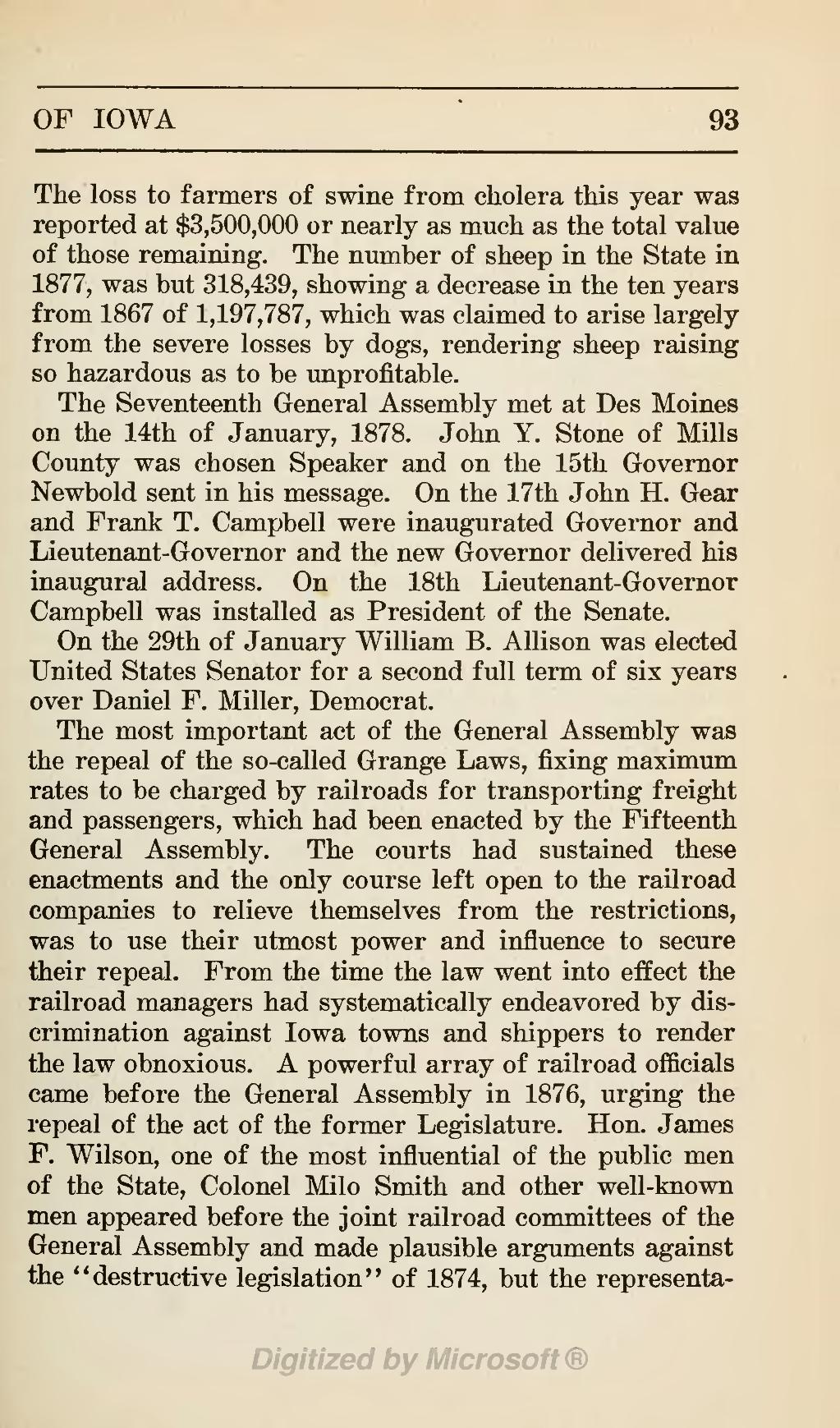The loss of farmers of swine from cholera this year was reported at $3,500,000 or nearly as much as the total value of those remaining. The number of sheep in the State in 1877, was but 318,439, showing a decrease in the ten years from 1867 of 1,197,787, which was claimed to arise largely from the severe losses by dogs, rendering sheep raising so hazardous as to be unprofitable.
The Seventeenth General Assembly met at Des Moines on the 14th of January, 1878. John Y. Stone of Mills County was chosen Speaker and on the 15th Governor Newbold sent in his message. On the 17th John H. Gear and Frank T. Campbell were inaugurated Governor and Lieutenant-Governor and the new Governor delivered his inaugural address. On the 18th Lieutenant-Governor Campbell was installed as President of the Senate.
On the 29th of January William B. Allison was elected United States Senator for a second full term of six years over Daniel F. Miller, Democrat.
The most important act of the General Assembly was the repeal of the so-called Grange Laws, fixing maximum rates to be charged by railroads for transporting freight and passengers, which had been enacted by the Fifteenth General Assembly. The courts had sustained these enactments and the only course left open to the railroad companies to relieve themselves from the restrictions was to use their utmost power and influence to secure their repeal. From the time the law went into effect the railroad managers had systematically endeavored by discrimination against Iowa towns and shippers to render the law obnoxious. A powerful array of railroad officials came before the General Assembly in 1876, urging the repeal of the act of the former Legislature. Hon. James F. Wilson, one of the most influential of the public men of the State, Colonel Milo Smith and other well-known men appeared before the joint railroad committees of the General Assembly and made plausible arguments against the “destructive legislation” of 1874, but the representa-
